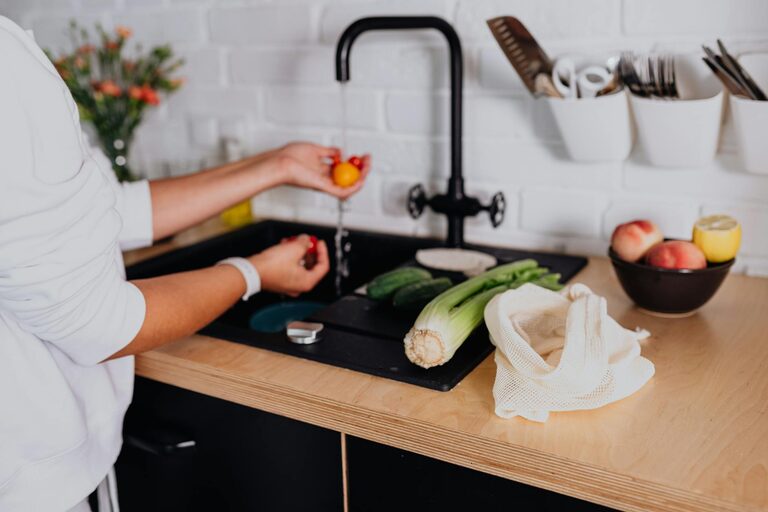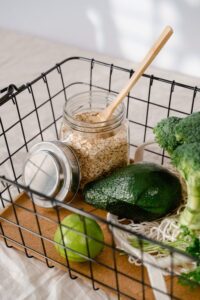Easy Ideas for Making Dinner Cleanup a Breeze

After a tasty dinner, the last thing most of us want to face is a sink full of dirty dishes and a messy kitchen. However, with a few easy strategies and smart habits, you can make the cleanup process quicker and less overwhelming. Whether you cook for your family daily or occasionally host friends, these ideas will help you maintain a tidy kitchen while saving time and energy.
1. Plan Ahead with Easy Cleanup in Mind
Preparation can make a big difference. When you plan your meals, consider dishes and cooking methods that naturally reduce mess.
– One-pot or one-pan meals: These recipes minimize the number of pots, pans, and dishes used, which means less to clean.
– Use parchment paper or foil: Line baking trays with parchment or foil to prevent food from sticking and make washing trays easier.
– Limit utensils: Try to use the same kitchen tools for multiple steps to cut down on the number of items that need washing.
2. Organize Your Workspace Before Cooking
Starting with a tidy kitchen sets the tone for an efficient cleanup.
– Clear your counters: Remove clutter so you have plenty of room to work and fewer surfaces to clean afterward.
– Gather all ingredients and utensils: Having everything nearby reduces mess caused by moving back and forth.
– Use bowls for prep: Instead of chopping directly on the counter, use bowls and cutting boards for ingredients to contain spills.
3. Clean As You Go
This is one of the most effective ways to keep cleanup manageable.
– Wash or rinse dishes while food cooks: Use cooking time to wash cutting boards, utensils, and bowls.
– Wipe spills immediately: Fresh spills are easier to clean than dried-on messes.
– Dispose of scraps promptly: Use a compost bin or trash to avoid piling up waste on your counters.
4. Simplify Serving and Eating
Serving strategies affect the number of dishes used.
– Serve family-style: Placing dishes on the table for everyone to help themselves reduces the number of plates and serving bowls.
– Use reusable placemats or trays: These can catch crumbs and spills, making post-meal cleanup faster.
– Minimize extra dishes: Avoid unnecessary side plates or cups unless needed.
5. Use Smart Kitchen Tools to Reduce Cleanup
Certain kitchen tools and gadgets can save you from heavy scrubbing.
– Silicone spatulas and utensils: These are easy to clean and often dishwasher safe.
– Non-stick cookware: Food slides off easier, so scrubbing is minimized.
– Dishwasher-friendly containers: Store leftovers directly in containers that can go into the dishwasher.
– Sink strainers: These catch food bits to prevent clogging and make trash disposal simple.
6. Get Everyone Involved
Cleanup doesn’t have to be a solo effort.
– Divide tasks: Assign roles like clearing the table, rinsing dishes, or wiping counters.
– Make it routine: Encourage consistent habits by setting a cleanup time after dinner.
– Turn it into a game or challenge: Time everyone or set small rewards to make tidying up more fun.
7. Develop a Quick Post-Meal Cleanup Routine
Having a consistent process helps the task feel less daunting.
– Clear and scrape plates immediately: Remove leftover food into the trash or compost.
– Load the dishwasher right away: Don’t let dishes pile up in the sink.
– Soak tough pots and pans: Fill with warm, soapy water to soften stubborn food before washing.
– Wipe down surfaces: Use a damp cloth or kitchen wipe for countertops and stove tops.
8. Keep Cleaning Supplies Handy and Organized
The right tools at your fingertips speed up the process.
– Stock up on dish soap, sponges, and scrubbers: Replace them regularly for better results.
– Use multi-purpose cleaners: These reduce the need for multiple products.
– Organize under the sink or near your dishwasher: When tools are easy to find, you’ll be more likely to use them.
9. Consider Disposable Options When Appropriate
While eco-friendly habits are important, sometimes disposable items can save time.
– Use parchment paper liners or baking cups: These make baking cleanup simpler.
– Paper towels for quick spills: Use sparingly but keep them handy.
– Reusable cloth alternatives: For regular use, reusable dishcloths and microfiber towels reduce waste and clean well.
10. Schedule Deep Cleaning for Less Frequent Times
Daily cleanup should be quick and light; reserve deep cleaning for occasional sessions.
– Clean the oven and refrigerator monthly: This prevents buildup of food and grime.
– Wash dish racks and sponges regularly: They can harbor bacteria.
– Organize cabinets and pantry as needed: A tidy kitchen reduces mess overall.
—
Final Thoughts
Dinner cleanup doesn’t need to be a dreaded chore. With a little planning, teamwork, and the right habits, you can turn the end of your meal into a smooth, stress-free routine. Try a few of these ideas to find what works best for your kitchen and lifestyle — your future self will thank you!




